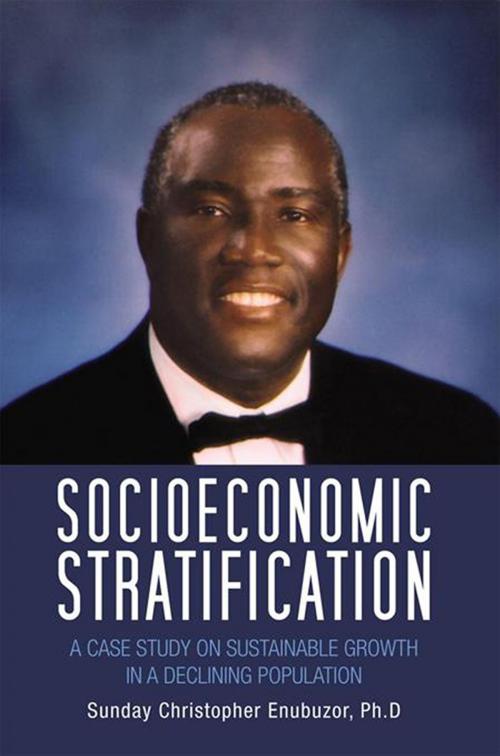Socioeconomic Stratification
A Case Study on Sustainable Growth in a Declining Population
Business & Finance, Economics| Author: | Sunday Cristopher Enubuzor Ph.D. | ISBN: | 9781469181400 |
| Publisher: | Xlibris US | Publication: | May 8, 2012 |
| Imprint: | Xlibris US | Language: | English |
| Author: | Sunday Cristopher Enubuzor Ph.D. |
| ISBN: | 9781469181400 |
| Publisher: | Xlibris US |
| Publication: | May 8, 2012 |
| Imprint: | Xlibris US |
| Language: | English |
Studies have documented that recent population decline in U.S. counties has been exacerbated by economic recession, but there is a lack of information about how to stabilize a declining population in a growing economy. The purpose of this book was to measure participants perceptions of the relationship between population decline and economic growth, employment, and education in one northern US County. Smiths theory relating functional division of labor to increases in wealth and Malthuss theory relating population change and economic growth served as theoretical bases. This mixed-methods case study used documents, a survey of 25 participants, and individual interviews with 10 participants. Data were analyzed with ANOVAs, t tests, and linear simple regressions. Survey results indicated that participants believed there was a minimal to moderate correlation between population decline and economic growth and that increased higher education opportunities in the community could stabilize the population and create long-term economic growth. Some participants were concerned that increased educational opportunities would lead to overpopulation and a loss of traditional values, suggesting that efforts should be made to help community members understand the value of higher education as a population and economic stabilizer. This study can contribute to positive social change by providing strategies for maintaining economic stability in areas experiencing population decline.
Studies have documented that recent population decline in U.S. counties has been exacerbated by economic recession, but there is a lack of information about how to stabilize a declining population in a growing economy. The purpose of this book was to measure participants perceptions of the relationship between population decline and economic growth, employment, and education in one northern US County. Smiths theory relating functional division of labor to increases in wealth and Malthuss theory relating population change and economic growth served as theoretical bases. This mixed-methods case study used documents, a survey of 25 participants, and individual interviews with 10 participants. Data were analyzed with ANOVAs, t tests, and linear simple regressions. Survey results indicated that participants believed there was a minimal to moderate correlation between population decline and economic growth and that increased higher education opportunities in the community could stabilize the population and create long-term economic growth. Some participants were concerned that increased educational opportunities would lead to overpopulation and a loss of traditional values, suggesting that efforts should be made to help community members understand the value of higher education as a population and economic stabilizer. This study can contribute to positive social change by providing strategies for maintaining economic stability in areas experiencing population decline.















